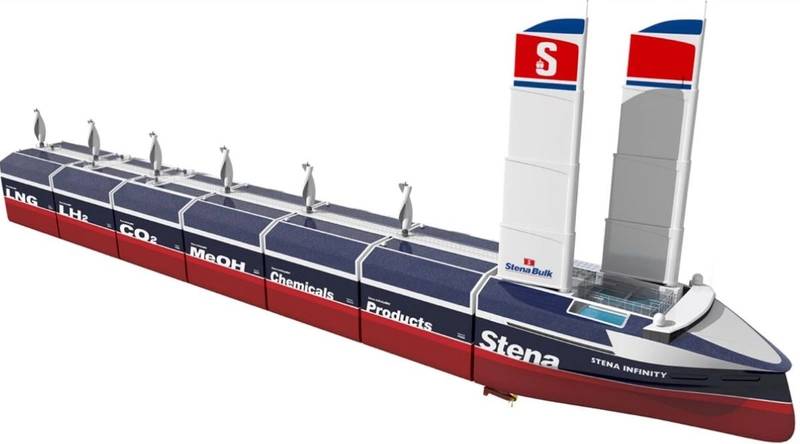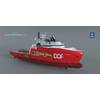Stena Bulk Debuts InfinityMAX Electric Vessel Design Concept
As shipping companies face mounting societal and regulatory pressure to decarbonize, innovative alternative designs are expected to become the norm rather than the exception. Stena Bulk unveiled the InfinityMAX hybrid bulk carrier concept, intended to push the boundaries for zero carbon, multi-modal vessel design. It is electric and modular, designed to enable sustainable, zero carbon, efficient and flexible seaborne transportation.
The concept is designed to carry both dry and wet cargoes in modular compartments, and it is built with several new core principles that, according to Stena Bulk, cumulatively represent a paradigm shift in cargo transportation.

A key to this design was the creation of standardized and modular cargo units that can carry dry bulk, liquid bulk or liquified gas products, such as methane, hydrogen or ammonia, that is envisioned to significantly streamline the process of transporting wet and dry bulk cargoes.
"The application of advanced technologies—including hydrogen fuel and other efficiency measures—means that this is a vessel concept that proves our core philosophy that innovation is key to commercial success, given the challenges that we all face," said Erik Hånell, President & CEO, Stena Bulk. "We will continue to work closely with our innovation partners, leaving no stone unturned to ensure that the right advances happen to make the InfinityMAX concept into a reality."
Each of the InfinityMAX’s modular cargo units are designed to be totally self-sufficient in terms of their energy use, with wind turbines and solar panels generating all the electricity needed for internal systems. The modular units have also been designed to be able to be dropped off outside of ports and picked up by tugs, helping to ease congestion and reduce call times dramatically.
The InfinityMAX concept will use hydrogen as a marine fuel and wind turbines to generate further energy. Collapsible wing sails and a shark skin hull have also been incorporated in the concept design to significantly improve efficiency.
Although the vessels will be crewed, Stena Bulk has designed the InfinityMAX concept to be semiautonomous.
With the right level of matured technologies, Stena Bulk believes that an InfinityMAX vessel could come into service between 2030 and 2035.
Related News

